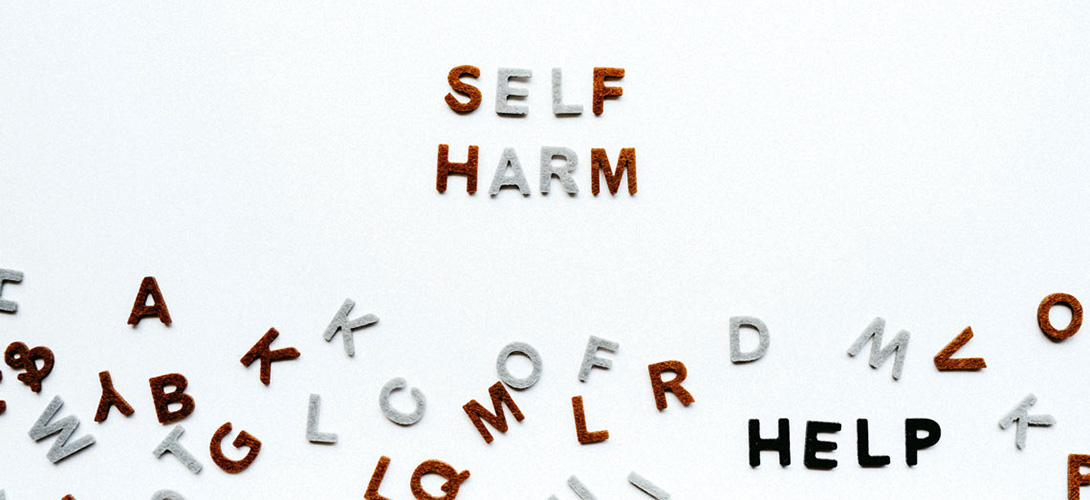
Have you had thoughts about self harm? Are you worried that a friend or family member has started self-harming? It's natural to feel scared but the more you know about it, the better equipped you are to be of help.
What is Self Harm?
Self harm is when someone intentionally hurts, cuts or injures themselves. For some people, self harm is a way of coping with difficult or overwhelming feelings.
Self harm is not necessarily a suicide attempt. Often, people can engage in self harm as a coping mechanism to deal with intense or difficult emotions.
Forms of Self Harm
- cutting
- burning
- scalding
- hitting or scratching
- breaking bones
- hair pulling
- swallowing toxic substances or objects
- engaging in risk behaviours (e.g. through sex, drugs & alcohol)
Why do people self harm?
- Self harm may be seen as a way to attempt to deal with negative, difficult and painful emotions. Eg. Being bullied at school and too afraid to tell anyone.
- Self harm may be seen as a way to express difficult or hidden feelings they are experiencing. Overwhelming feelings can sometimes leave people feeling numb or empty. Engaging in self harm may provide a temporary sense of feeling again, or may be a method they use to release anger, sadness, grief or hurt. Eg. Coping with the death of a loved one
- Self harm may be seen as providing a way to communicate a need for support when a person is unable to verbally ask for help. Eg. Someone experiencing physical or sexual abuse
- Self harm may be seen by young people as a practice which helps them feel they are in control. They might feel that self harm is one way they can have a sense of control over their life, their feelings, or their body – especially if they feel as if other things in their life are out of control. Eg. Divorce, exam pressure, parental expectations, living in poverty
Asking for help
If you have started self-harming or are thinking about self-harming, there are a lot of things you can do:
- Take a deep breath. Talk to someone you trust about how you’re feeling. If you don’t want to talk to anyone you know, Childline is always here for you.
- Ask your trusted person to help you create a safe space by dealing with any immediate medical concerns. Contact emergency services or attend your local A&E if necessary. Once that’s done, remove any dangers from your bedroom or living area – sharp objects, knives, etc.
- Do your best to surround yourself with people who understand you and who will listen to you with understanding and empathy. Don’t be afraid to reach out to the people who love you.
- Instead of downplaying what you are going through, embrace your feelings and try to get to the root of the issue. What is making you want to self harm? What can you do to make that situation better? How can you rebuild your self-belief and self-worth?
- Write down your happiest memories or moments when you felt valued, worthy or helpful to the people around you. Go for a walk with a family member and ask them what they love about you. It might make you both cringe at the start but it will get easier!
- Replace the self-harm or thoughts of self-harm with other activities – eg. deep breathing, painting, writing in a journal, listening to music, knitting, expressing your anger through drawing or other forms of art, going outside and yelling loudly (or screaming into a pillow). Alternatively, you could give use body oil or moisturising cream and rub that on the area that you are thinking about cutting/harming.
- Seek professional advice and support.
Support is available
If you feel that you need support and guidance from a professional, go to your GP or a hospital. Medical professionals can refer you to a specialist who can provide you with further help. Different professionals often work together in Child and Adolescent Mental Health Services (CAMHS).
You can find more information and support around your mental health at the following organisations:
Childline is available at any time of the day or night for any child or young person up to the age of 18 in Ireland who wishes to talk about any topic on their mind. Childline is here to listen and offer support.



